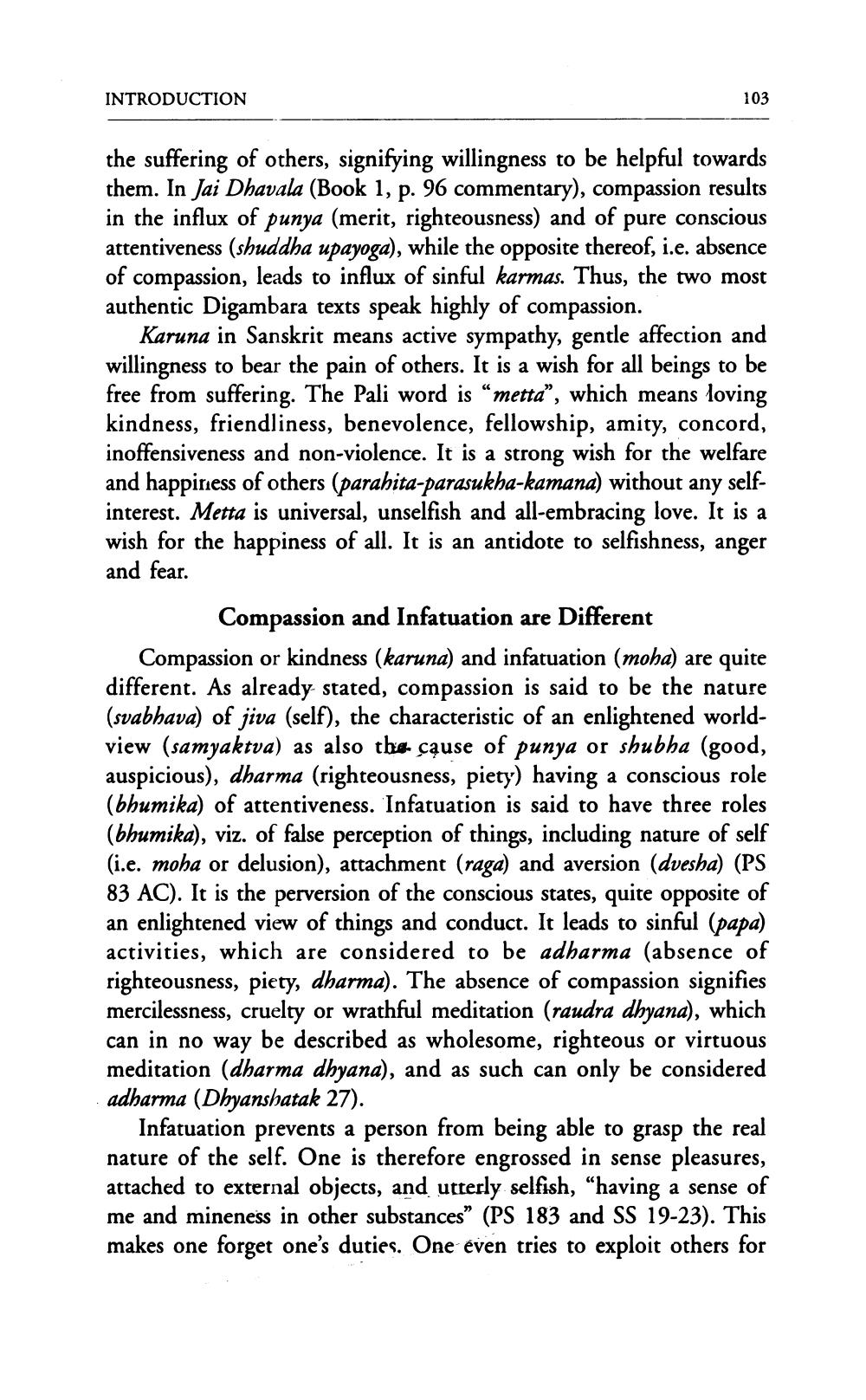________________
INTRODUCTION
103
the suffering of others, signifying willingness to be helpful towards them. In Jai Dhavala (Book 1, p. 96 commentary), compassion results in the influx of punya (merit, righteousness) and of pure conscious attentiveness (shuddha upayoga), while the opposite thereof, i.e. absence of compassion, leads to influx of sinful karmas. Thus, the two most authentic Digambara texts speak highly of compassion.
Karuna in Sanskrit means active sympathy, gentle affection and willingness to bear the pain of others. It is a wish for all beings to be free from suffering. The Pali word is “metta”, which means loving kindness, friendliness, benevolence, fellowship, amity, concord, inoffensiveness and non-violence. It is a strong wish for the welfare and happiness of others (parahita-parasukha-kamana) without any selfinterest. Metta is universal, unselfish and all-embracing love. It is a wish for the happiness of all. It is an antidote to selfishness, anger and fear.
Compassion and Infatuation are Different
Compassion or kindness (karuna) and infatuation (moha) are quite different. As already stated, compassion is said to be the nature (svabhava) of jiva (self), the characteristic of an enlightened worldview (samyaktva) as also the cause of punya or shubha (good, auspicious), dharma (righteousness, piety) having a conscious role (bhumika) of attentiveness. Infatuation is said to have three roles (bhumika), viz. of false perception of things, including nature of self (i.e. moha or delusion), attachment (raga) and aversion (dvesha) (PS 83 AC). It is the perversion of the conscious states, quite opposite of an enlightened view of things and conduct. It leads to sinful (papa) activities, which are considered to be adharma (absence of righteousness, piety, dharma). The absence of compassion signifies mercilessness, cruelty or wrathful meditation (raudra dhyana), which can in no way be described as wholesome, righteous or virtuous meditation (dharma dhyana), and as such can only be considered adharma (Dhyanshatak 27).
Infatuation prevents a person from being able to grasp the real nature of the self. One is therefore engrossed in sense pleasures, attached to external objects, and utterly selfish, "having a sense of me and mineness in other substances" (PS 183 and SS 19-23). This makes one forget one's duties. One even tries to exploit others for




